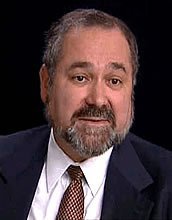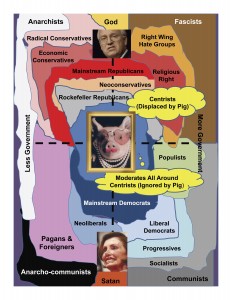
Steele on Electoral Reform – Part 7: Representation
Enact Open Registration. Enact Proportional Representation via the Voting process (Part: 3) with full integration of the Electoral Integrity Principles (Part: 1) and full use of national referendums (Part: 4). What this means is that no voting block comprising 5% or more of the population, across the country or across any state, will lack for designated representation in the national or the respective state legislatures.
– – – – – –
I confess that all these calculations make my head hurt. A Citizens Wisdom Council would be helpful here. The bottom line is that while the other elements of the Electoral Reform Act of 2012 mandate aspects of process, this one focuses on a desired outcome. If there are enough Light Party members across the country to comprise 5% or more, then the Light Party must be represented by at least one Member in the House of Representatives.

This is an element that requires further deliberation and adjustments in how we vote. This is very complicated. A major part of the problem in the past has been the result of the two-party tyranny displacing the center and making it impossible for the diversity of voices across America to be heard. In the graphic here to the right, created, with permission, on the basis of a simpler depiction in Michael Crane, The Political Junkie Handbook: A Definitive Reference Book on Politics (SPI Books, 2004).
Of special concern to me in the manner in which the two-party tyranny has repressed the common-sense centrist views of their moderates. Those moderates desperately need alternative parties, and while I certainly believe the existing certified active national committee parties should continue to grow (Constitution, Green, Libertarian, Reform), there is no question but that the Justice Party, being created this year, meets a need.
Previous: Part 6: Cabinet
Next: Part 8: Districts

